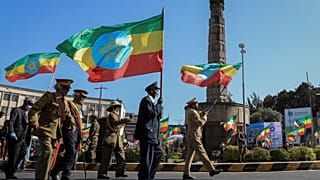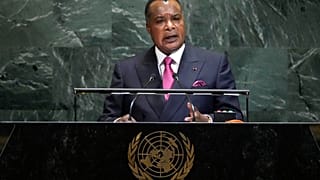USA
Americans are getting ready to celebrate Juneteenth, marking the day in 1865 when the last enslaved people in the United States learned they were free, in Galveston, Texas.
Although President Abraham Lincoln’s Emancipation Proclamation freed the slaves in 1863, it could not be enforced in many places in the South until the Civil War ended in 1865.
News that the war had ended and that they were finally free reached Galveston when a Union major and his troops arrived on June 19, 1865, more than two months after Confederate General Robert E. Lee surrendered to Union General Ulysses S. Grant in Virginia.
The resulting Juneteenth holiday — its name combining “June” and “nineteenth” — has only grown in one-and-a-half centuries.
Lindsey Swindall is a Teaching Assistant Professor at the Stevens Institute of Technology, in Hoboken, New Jersey:
"Juneteenth has become a sort of symbol of the end of slavery. Tradition holds that it was in the summer of 1865 that enslaved people in Galveston, Texas, a lot of them were dock workers, heard about emancipation, and there was this big announcement that emancipation had come and that freedom was now available to enslaved people."
Bravery and defiance
In the years following the Civil War, marking the occasion was an act of bravery and defiance for many Black Americans, particularly those living in the segregated South, where the White Supremecist Klu Klux Klan was established in 1868 and where President Lincoln's Emancipation Act was still widely rejected.
"In the late 1800s, celebrations of Juneteenth mainly took place in African American communities," Swindall says. "This would've been the safest context in which to celebrate emancipation because as segregation became more entrenched, it's becoming dangerous to really talk about these ideas. There's a lot of vigilante violence in the late 1800's and early 1900's, so for African Americans to even talk about or celebrate emancipation with something that could be potentially inflammatory."
Over the decades, Juneteenth has also been called Freedom Day, Emancipation Day, Black Fourth of July and second Independence Day.
In 2021, President Joe Biden designated Juneteenth a federal holiday, expanding its recognition beyond Black America.











02:19
Goma's iconic Amani Festival relocates to Lubumbashi
Go to video
'No food' in South Sudan displacement camp as new conflict breaks out
Go to video
Sudan’s children caught between war and hope
Go to video
African Union adopts resolution calling slavery and colonialism genocide
01:16
Britain sanctions six over atrocities and arms support in Sudan War
00:49
Sudanese military says it has broken siege on key Kordofan city